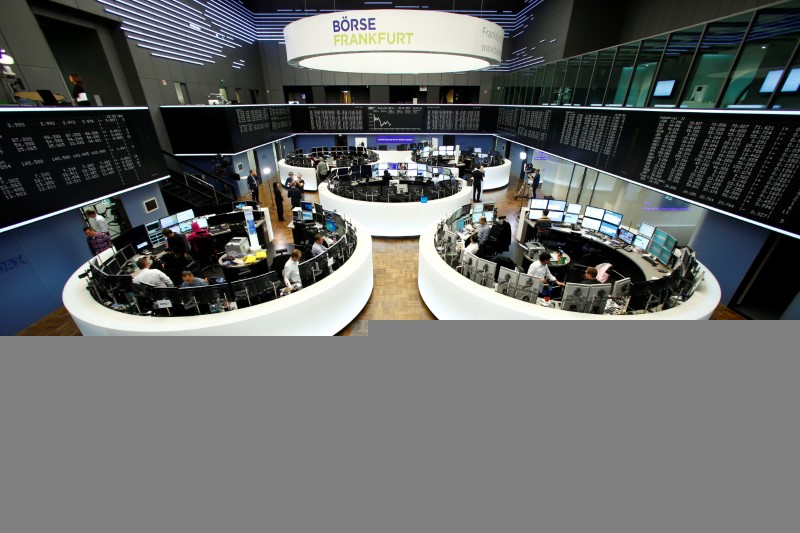 © Reuters. FILE PHOTO: A Britain’s and some European flags are hung outside the EU Commission headquarters in Brussels
© Reuters. FILE PHOTO: A Britain’s and some European flags are hung outside the EU Commission headquarters in BrusselsLONDON/DUBLIN (Reuters) – Britain will end its implementation period with the European Union after Brexit in December 2020, a spokeswoman for Prime Minister Theresa May said on Thursday, denying a media report that the government was seeking a new transition until 2023.
The spokeswoman repeated Britain’s stance that the transition period would end in December 2020 after The Times newspaper reported that May would propose another transition covering customs and trade to run from 2021 until 2023 to avoid the need for infrastructure or checks on the Irish border.
Northern Ireland will be Britain’s only land frontier with the European Union after Brexit. Both sides say they are committed to keeping the border with the Irish Republic open, but finding a practical solution has proved elusive so far.
Irish Prime Minister Leo Varadkar, who enjoys strong support from the other EU states, said Dublin could not agree to a time-limited solution.
“Well 2023 won’t do. The Irish government won’t be able to agree to a situation where we put off a fundamental decision like that,” Varadkar told Ireland’s Newstalk radio station.
The EU and Dublin insist the Brexit treaty must lock in a backstop arrangement in case a future trade pact does not remove the need for border controls. London signed up for this last month but disagrees with the EU’s means of achieving it.
Varadkar said: “The whole purpose of having the backstop is that that’s a guarantee that is there in perpetuity and just kicking the can down the road on the basis that maybe we can come up with some sort of legal or technological solutions that don’t exist now, that’s not something we could accept.”
The British government says it will soon propose an alternative backstop idea to the EU, which would see Britain applying the bloc’s external tariffs for a limited period beyond December 2020 if there is any delay on ratification or on introducing new customs arrangements.
May’s spokeswoman said the government intends to be ready with new customs arrangements by the end of the transition period, despite a parliamentary report also saying that Britain may have to stay in the customs union.
In Brussels, EU Industry Commissioner Elzbieta Bienkowska urged London to give “at least some kind of predictability” for the period after it leaves the bloc next year.
“From the very beginning of these negotiations, it has been visible that it’s not the European Union that is delaying this process. We are quite well prepared for this,” she said.
Fusion Media or anyone involved with Fusion Media will not accept any liability for loss or damage as a result of reliance on the information including data, quotes, charts and buy/sell signals contained within this website. Please be fully informed regarding the risks and costs associated with trading the financial markets, it is one of the riskiest investment forms possible.
Source: Investing.com



























